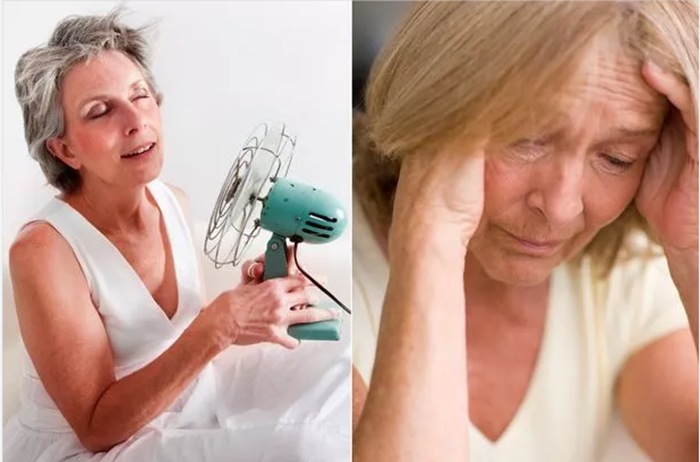Hot flashes are a common symptom of menopause, affecting up to 75% of women. They are characterized by sudden feelings of heat, sweating, and flushing, and can be uncomfortable and disruptive. While hormone replacement therapy (HRT) is a common treatment for hot flashes, it is not always recommended or desired. In this article, we will explore tips and strategies for managing hot flashes without hormones.
What are Hot Flashes?
- Hot flashes are sudden feelings of heat that can cause sweating, flushing, and a rapid heartbeat.
- They typically last for a few minutes and can occur several times a day or week.
- Hot flashes are a common symptom of menopause, but can also occur in women who have had their ovaries removed or who are undergoing certain cancer treatments.
3 Causes of Hot Flashes
- Hot flashes are caused by changes in hormone levels, particularly a decrease in estrogen.
- Estrogen helps regulate body temperature, and a decrease in estrogen levels can cause the body’s thermostat to become more sensitive, leading to hot flashes.
- Other factors, such as stress, anxiety, and certain medications, can also trigger hot flashes.
Symptoms of Hot Flashes
- The main symptom of hot flashes is a sudden feeling of heat, which can cause sweating, flushing, and a rapid heartbeat.
- Other symptoms may include chills, dizziness, and nausea.
- Hot flashes can also disrupt sleep and affect mood and quality of life.
Coping with Hot Flashes
- Coping with hot flashes can be challenging, but there are several strategies that can help.
- Dressing in layers, using a fan, and avoiding triggers, such as spicy foods and alcohol, can help manage hot flashes.
Practicing stress reduction techniques, such as meditation and deep breathing, can also help reduce the frequency and severity of hot flashes. - Talking to a healthcare provider and seeking support from family and friends can also be helpful in coping with hot flashes.
Hot flashes are non-hormonal treatments
Lifestyle Changes
- Lifestyle changes can help reduce the frequency and severity of hot flashes.
- Maintaining a healthy weight, eating a balanced diet, and staying hydrated can help regulate body temperature and reduce hot flashes.
- Avoiding triggers, such as spicy foods, caffeine, and alcohol, can also help reduce hot flashes.
Mind-Body Techniques
- Mind-body techniques, such as relaxation, meditation, and deep breathing, can help reduce stress and regulate body temperature, which can reduce hot flashes.
- Yoga and tai chi, which combine physical movement with relaxation and meditation, can also be effective in reducing hot flashes.
Acupuncture
- Acupuncture, a traditional Chinese medicine technique that involves inserting thin needles into specific points on the body, may help reduce hot flashes.
- Studies have shown that acupuncture can reduce the frequency and severity of hot flashes, although more research is needed to confirm its effectiveness.
Herbal Supplements
- Herbal supplements, such as black cohosh and red clover, may help reduce hot flashes.
- Black cohosh has been shown to reduce the frequency and severity of hot flashes in some studies, although its effectiveness is still being researched.
- Red clover contains phytoestrogens, which are plant compounds that mimic the effects of estrogen in the body and may help reduce hot flashes.
Why Consider Non-Hormonal Treatments?
- Hormonal treatments, such as HRT, can have side effects and may not be appropriate for all women.
- Non-hormonal treatments can be effective in reducing hot flashes and may be a safer and more desirable option for some women.
- Non-hormonal treatments can also be used in combination with hormonal treatments to enhance their effectiveness.
Prescription Medications
- Prescription medications, such as selective serotonin reuptake inhibitors (SSRIs) and gabapentin, may be recommended to reduce hot flashes.
- SSRIs, which are commonly used to treat depression, have been shown to reduce hot flashes in some women.
- Gabapentin, which is used to treat seizures and nerve pain, may also be effective in reducing hot flashes.
Conclusion
Hot flashes are a common symptom of menopause that can be uncomfortable and disruptive. While hormone replacement therapy (HRT) is a common treatment for hot flashes, it is not always recommended or desired. Lifestyle changes, mind-body techniques, acupuncture, herbal supplements, and prescription medications can all help reduce hot flashes without hormones. By working with a healthcare provider and exploring different treatment options, women can manage hot flashes and improve their overall quality of life.
Related topics
- Evening Primrose Oil for Hot Flashes: A Comprehensive Guide
- Navigating Hot Flashes: A Comprehensive Guide to Diet and Relief
- Managing Hot Flashes: Hormonal and Non-Hormonal Options


